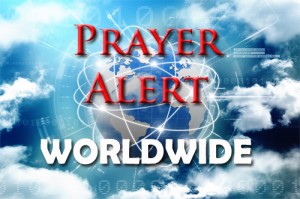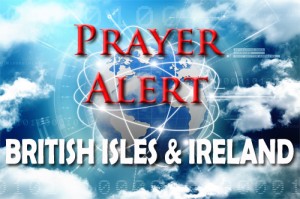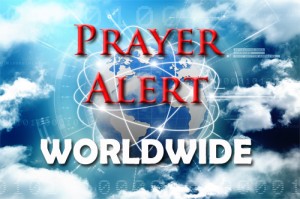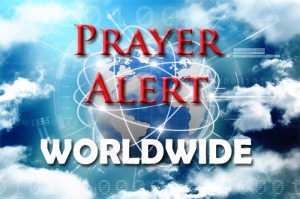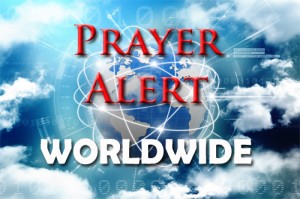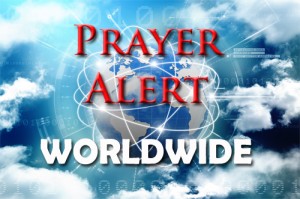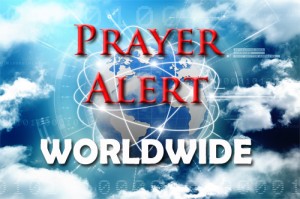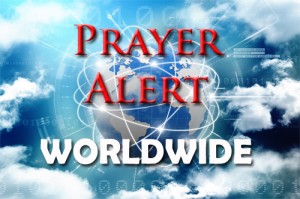Displaying items by tag: Africa
Tunisia: Muslim leader calls for conquest of nations
Recently, at an Islamic Caliphate conference, Said Khecharem, who is affiliated with the pro-Sharia, pro-caliphate organisation Hizb- ut-Tahrir, declared that the ‘establishment of an Islamic state requires the conquest of America, Britain, Russia, France, and Italy. Other infidel lands will be conquered, Allah willing.’ According to the Middle East Media Research Institute, he also said, ‘The most important thing is to restore the rule of the Muslims, through the Quran and the Sunna, in order to renew Islamic life and to deliver the Islamic message to the world. My brothers, the implication of this today should be the establishment of an Islamic state over all the lands of the infidels.’ Some in the west are noting that even now relatively few mosques or Islamic schools teach young Muslims why they should reject the violent understanding of Islam taught by al-Qaeda, IS, and other terror groups.
Goodbye ‘rock fame’, hello adventures with God
Jean du Rand’s father leads a vibrant church, and there were Afrikaans Baptist pastors on his mother’s side; but in 2010, while a member and songwriter in a successful South African band, and still in his teens, he became involved in alcohol and drugs. He didn’t find the happiness that this lifestyle was supposed to bring, and during a university lecture he experienced God’s presence. The Holy Spirit said, ‘You know Jean, I have plans for your life. You can come with Me now and leave this place, or you can come in five years. I’m going to use you either way, and it’s up to you how much pain you want to traverse.’ Jean chose ‘now’. He is now about to release some Afrikaans worship songs ‘with a difference’. You can hear one of his songs on Youtube:
PM visits Africa ahead of Brexit
Theresa May visited Africa on a major mission to build up new trade relations ahead of Brexit. Pray that every detail of conversations with South African, Nigerian and Kenyan leaders will be used to re-engage with a fast-growing continent which some feel British business and politicians have neglected in recent years. Pray that the delegates who travelled with her (trade minister George Hollingbery, minister for Africa Harriett Baldwin, secretary of state for Wales Alun Cairns, a Stock Exchange representative, and the Lord Mayor of London Charles Bowman) will in the future be able to build on the links made. A Government statement before the visit stated, ‘This comes at a time of enormous change across Africa with a unique opportunity, as the UK moves towards Brexit, for a truly global Britain to invest in and work alongside African nations, with mutual benefits.’
Mauritania: national assembly election
On 1 September, the North African desert country Mauritania will have an election for its national assembly. 146 members will be elected for one- or four-year terms. Most of its population is nomadic, but a third of Mauritanians are registered voters. It is one of the world's poorest nations, and one of the most religiously restricted. Sunni Islam and Sharia law have ruled them over a thousand years. The government prohibits conversion to Christianity. Those who do so face the death penalty, and must not enter non-Muslim households. A caste system grants privileges to certain groups. They marginalise darker-skinned Mauritanians or anyone who holds a worldview other than Islam. The Islamic terror group AQIM (Al-Qaeda in the Islamic Maghreb) operates in Mauritania.
Kenya: Freedom Sunday
IJM has released a Freedom Sunday promo video to media houses, churches, and the general public in Kenya. We have been asked to pray for a positive reception and widespread engagement from the Kenyan church. This video is unique in bringing together leaders from a variety of Christian denominations (including Catholic, Anglican and evangelical) to speak with one voice about the role of the church in addressing police abuse in Kenya. Pray that many churches will participate in Freedom Sunday, and that members will be moved to help vulnerable families in their communities who have suffered from police abuse. Pray for an unprecedented number of churches to dedicate Sunday 23 September to ending slavery and helping to rescue every child, woman and man living in slavery.
Kenya: Theresa May visit
At the time of writing Theresa May is visiting Kenya. There is a desire for both countries to develop trust and trade in the future. On her visit the PM was joined by several ministers and 29 business representatives from various industries. We can pray that her visit will initiate and bolster improved post-Brexit trade and cultural ties between the nations. Many believe that in the past Britain has not treated Kenya with equality, but rather as a bully, while the Chinese have humbly generated business: statistics show that China has dwarfed UK imports to Kenya over the last three decades. Pray for the West to rethink foreign policy. One of the Kenya-UK partnership agreements was a commitment to improve lives of people living with disability.
Egypt: suicide attack on church foiled
IS terrorists have mounted a number of attacks on churches in Egypt in the last two years, but on 11 August tight security foiled an attempted suicide attack on a church in Mostorod, north of Cairo. Security guards stopped the attacker from entering the church grounds to target worshippers. The bomber then detonated his explosives about 250 metres from the church, killing himself and a passer-by. Egyptian security services subsequently made seven arrests in relation to the attack. At the time of writing, no organisation has claimed responsibility. Please pray for the friends and relatives of the deceased.
Cameroon: growing violence
The World Council of Churches (WCC) has called on the Cameroonian government to stop using force to punish its people in the English-speaking region. The authorities should immediately cease using ‘disproportionate and deadly force against civilians and protect everyone’s human rights’. The UN described the situation as ‘an unprecedented complex humanitarian crisis’ caused by violence between the government and both English-speaking separatists in the west of Nigeria and Boko Haram in the north-east. The country has been affected by the mass displacement of hundreds of thousands of Nigerians and Cameroonians; also by insecurity, malnutrition, and a ‘very disturbing’ risk of epidemics, because of the ongoing conflict. The WCC particularly condemned escalating violence against women and children. Paul Biya, who has been president since 1982, intends to run for a seventh term.
Nigeria: KILLINGS - Let the truth be told
The National Christian Elders Forum (NCEF) commented on a press release by the Nigerian Supreme Council for Islamic Affairs (NSCIA). Their opening comments were, ‘On 5 July, 2018, the NSCIA published an article titled LET THE TRUTH BE TOLD. In our candid estimation, rather than tell the truth, the article is the exact opposite of the truth. It might have been more proper to have titled it ‘Let the Taqiyya be told.’ Taqiyya is religious deception and the article they refer to said that Muslims were the targeted victims of herdsmen. NCEF stated categorically that this statement is untrue and Muslims were not victimised, Christians are the victims while the government consents to ongoing genocide and ethno-religious cleansing of communities. NCEF said that the government deliberately obscures the truth as the targets of the Fulani herdsmen are natives of Middle Belt who are mainly Christians. See also next article - Five Christian youths to be hanged.
Nigeria: Five Christian youths to be hanged
Muslim Fulani herders do not make the headlines as often as Boko Haram. Christians in the northeast state of Adamawa have fled because of Boko Haram, only to return and find their property occupied by Muslim Fulani herders. Five Christian youths have been sentenced to hang for killing one Fulani herdsman who in turn had allegedly killed 48 people. Who is stopping the violence? Where is the government's protection for citizens? Where is justice? The lack of response by Nigeria's security services is seen as complicit in crimes against Christians. The Numan Federation in Adamawa is the only predominantly Christian area remaining in northern Nigeria. In recent years migration of Muslim Fulani herdsmen into that area has increased. The judicial, military, and security agencies are all controlled by non-Christians and many fear that the Muslim President may use the violence as an excuse to cancel the 2019 elections and remain in power.
